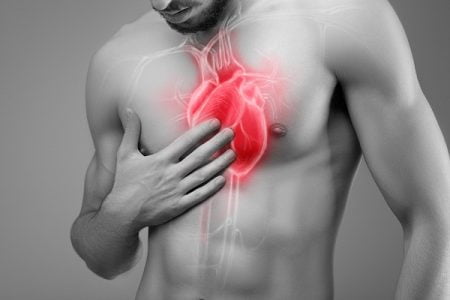How Do You Prevent a Heart Attack Quickly? Which Exercise Is Best for the Heart?
- Updated on: May 21, 2024
- 3 min Read
- Published on May 21, 2023

Introduction
Heart disease remains one of the leading causes of death worldwide, and preventing a heart attack is crucial for maintaining a healthy lifestyle. Thankfully, there are numerous preventive measures and exercises that can significantly reduce the risk of a heart attack. This article aims to provide practical tips on preventing a heart attack quickly and highlighting the best exercises for a healthy heart.
Preventing a Heart Attack Quickly
How to stop a heart attack in 30 seconds? Can you stop heart attack very fast?
There is no quick method to halt a heart attack that can replace the immediate attention of medical professionals in an emergency setting. While various rapid remedies for heart attacks may be encountered on the internet, they are not only ineffective but potentially hazardous as they can postpone the urgent care needed. Here are some ways you should adopt to prevent a heart attack as a regular precautionary method.
1. Adopting a Heart-Healthy Diet
A well-balanced diet plays a pivotal role in preventing heart disease. Incorporate the following dietary recommendations to reduce the risk of Heart Attack Symptoms.
Consume a variety of fruits and vegetables: These are rich in vitamins, minerals, and antioxidants that support heart health.
Opt for whole grains: Whole grains such as whole wheat, oats, and brown rice are excellent sources of fiber and can help lower cholesterol levels.
Choose lean protein sources: Replace red meat with lean proteins like poultry, fish, legumes, and tofu.
Reduce saturated and trans fats: Limit the intake of saturated and trans fats found in processed foods, fried foods, and high-fat dairy products.
Limit salt and sugar: Excessive salt intake can contribute to high blood pressure, while high sugar consumption may lead to obesity and diabetes.
2. Engaging in Regular Physical Activity
Regular exercise is vital for maintaining a healthy heart. The following are key recommendations for physical activity to prevent heart disease:
Aerobic exercises: Engage in moderate-intensity aerobic activities like brisk walking, cycling, swimming, or jogging for at least 150 minutes per week.
Strength training: Include strength training exercises at least two days per week to enhance muscle strength and endurance.
Stay active throughout the day: Avoid prolonged sitting or sedentary behavior. Take regular breaks and incorporate physical activity into your daily routine.
Find activities you enjoy: Choose activities that you find enjoyable to ensure long-term adherence to exercise routines.
3. Managing Stress
Stress can negatively impact heart health and increase the risk of a heart attack. To manage stress effectively:
Practice relaxation techniques: Engage in activities such as deep breathing exercises, meditation, yoga, or tai chi.
Get enough sleep: Aim for 7-8 hours of quality sleep each night to promote stress reduction and overall well-being.
Seek social support: Surround yourself with a supportive network of friends and family and maintain healthy relationships.
Engage in hobbies: Pursuing hobbies and engaging in activities you enjoy can help alleviate stress.
Best Exercises for a Healthy Heart
1. Cardiovascular Exercises
Cardiovascular exercises are particularly effective in promoting heart health. Some of the best exercises for a healthy heart include:
Brisk walking: An excellent low-impact exercise that can be easily incorporated into your daily routine.
Cycling: Whether outdoor or indoor cycling, it is an effective way to improve cardiovascular fitness.
Swimming: A whole-body workout that is gentle on the joints and improves heart health.
Running or jogging: A higher-intensity exercise that improves endurance and cardiovascular fitness.
2. Interval Training
Interval training combines short bursts of high-intensity exercise with recovery periods. This type of exercise has been shown to improve heart health and increase overall fitness levels. Examples include:
High-intensity interval training (HIIT): Alternating between short bursts of intense exercise (e.g., sprinting) and periods of active recovery (e.g., walking or light jogging).
Circuit training: Combining strength training exercises with short bursts of cardiovascular activities.
3. Strength Training
Strength training exercises are essential for maintaining muscle mass, increasing metabolism, and supporting overall heart health. Incorporate the following into your routine:
Resistance training: Using resistance bands, weights, or your body weight to build strength.
Compound exercises: Movements that engage multiple muscle groups simultaneously, such as squats, lunges, or push-ups.
Conclusion
Preventing a heart attack requires a multi-faceted approach, including adopting a heart-healthy diet, engaging in regular physical activity, and managing stress effectively. The best exercises for a healthy heart include cardiovascular exercises, interval training, and strength training. By implementing these strategies and making positive lifestyle choices, individuals can significantly reduce their risk of a heart attack and promote overall heart health.












